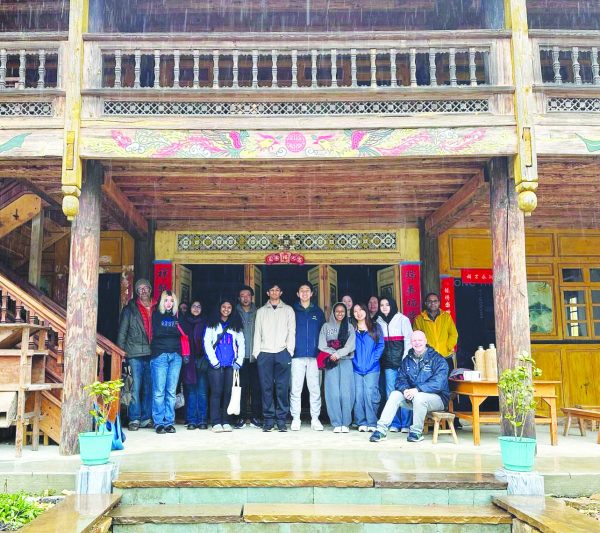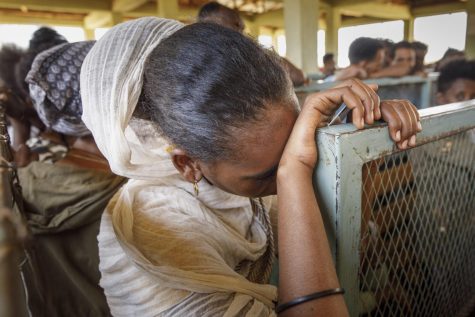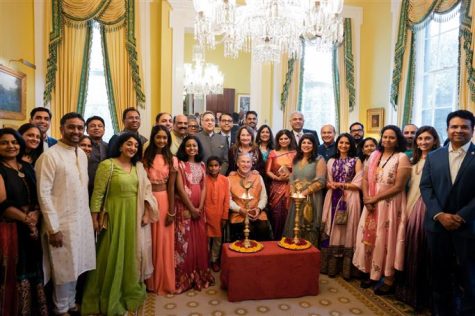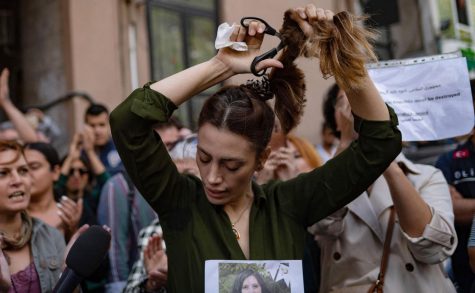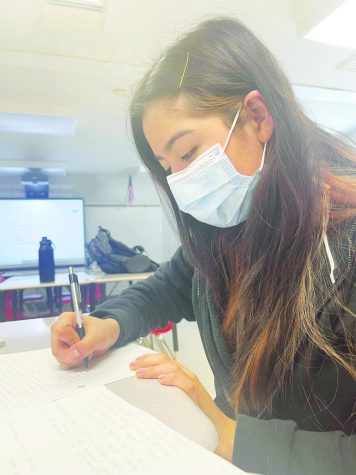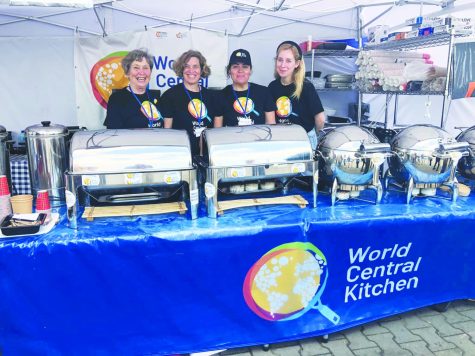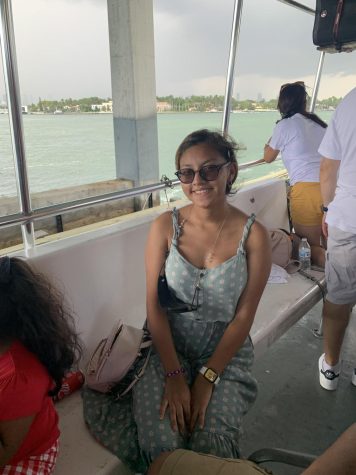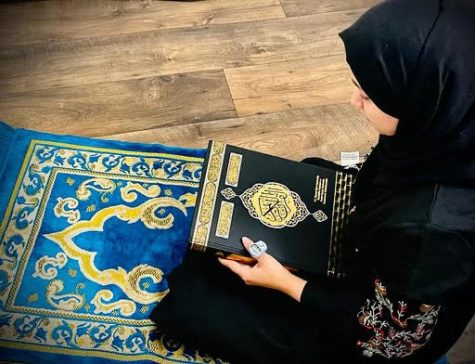Life Back in Syria
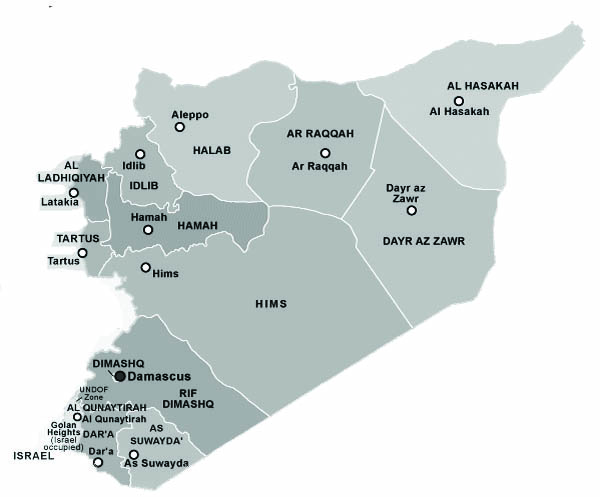
After years of running and panicing from bullets and bombs, Jasmine and Mohamed finally escaped the civil war.Senior Jasmine Haitalani lived in the city of Aleppo with her mom, father, younger brother, and the majority of her family
With good grades and plenty of friends, Haitalani left her whole life as she escaped to Annandale the summer of her junior year.
“I had to leave Aleppo due to the terrible situations occurring around me,” Haitalani said. “Half of the government places are closed and if anyone needs a visa to get out of the country, they have to go somewhere else to get it like Lebanon or Turkey.”
After living in America for a year, Jasmine was finally reunited with her brother, freshman Mohamed Haitalani.
“I was glad to have my brother here and see him again after an entire year,” Jasmine said. “I still haven’t seen my mom or dad since August of 2012. My mom is currently in Brazil trying to get a visa to come here and my dad is still back home.”
Since being here, problems have increasingly gotten worst back home. Jasmine and Mohamed describe the everyday struggles they’ve endured and witness – incidents that most people only see in newspapers and movies.
“There were tanks all through my neighborhood and you couldn’t go a day without a missile firing (occur during the days and nights),” Jasmine said.
“You could rarely get out of the house and between each block were soldiers from the army to check your car for weapons or anything threatening,” Mohamed said.
The electricity was and is unstable and unreliable throughout Syria. The electricity would go off in Aleppo almost every day and places that sustained power only had it for a couple of hours. “I would sometimes not talk to my dad for weeks because he didn’t have electricity and I would be worried sick. I was a nervous wreck,” Jasmine said.
The prices on everyday essentials doubled if not even tripled due to a shortage of supplies. This led to run down businesses and an increase in unemployment.
“For water, we had to look at the water storage in our building and so we had to limit the amount of water we used for laundry or even doing dishes,” Jasmine said. “Water wouldn’t be available during daytime, usually only at night time so we had to save gallons of water to use throughout the day.”
“My aunt and her family had to sleep over at our place for a month because she had no water or electricity at her house,” Mohamed said.
According to the UN, over 100,000 civilians have died over the course of the war – 10,000 of them being children. Others have been sexually assaulted, imprisoned, and homeless.
“My step aunt’s mother got hit in the leg and had to stay in the hospital for many weeks.” Mohamed said.
“While my brother and I were in the U.S., my house was shot with bullets but luckily my dad wasn’t home so he didn’t get hurt,” Jasmine said.
Public schools in the neighborhood were housing refugees or survivors from distant villages because they had no place to stay. They lived in small classrooms and each family had a minimum of six people making it’s incredibly tight.
“My school closed down and I had to be home schooled for eighth grade. It was okay to be out of school and on my own schedule but I missed seeing my friends,” Mohamed said.
The Haitalanis have experienced danger in an environment that should be safe.
“One of the missals hit the high school in our neighborhood. It was close by and we had to go somewhere place to hide in the house,” Mohamed said. “We were all afraid that it would hit our building because the school was extremely nearby. My sister contacted us a few hours later but we never told her so she wouldn’t worry. We actually hid a lot of things from her while I was still in Syria. My parents didn’t want her to worry and we wanted her to enjoy her time.”
Jasmine found out about the dangerous shooting once her brother came in July. “I was furious because my family was sacrificing and hiding things just for me to enjoy my time,” Jasmine said.
Predominantly Sunni, Aleppo was one of the main targets during the war from Syrian president Bashar al-Assad, a Shi’ite. Jasmine and her close family are Shi’ite whereas the rest of her family are Sunni.
“Although my family is with the Syrian president, I’m completely against him. The place I grew up in is slowly being destroyed and the matters are getting worse. I just hope it ends soon for the sake of the many lives lost,” Jasmine Haitalani said.
Jasmine and Mohamed both live with their aunt today and hope that the civil war will soon come to an end.
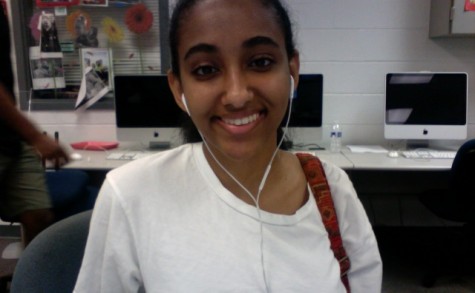
Nuhami Mandefro is the Entertainment Editor for the A-Blast. She is a senior and has been a journalism student for since her freshman. This is her second...



